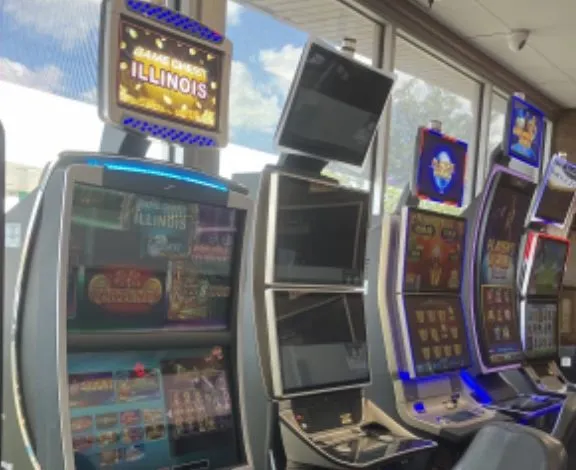
Editor’s note: Jim Brown is a feature writer who writes about local businesses for the RoundTable. This is his first column in what will be an occasional series. He is an avid conservationist, birder, nature photographer and is interested in all things Evanston.
The definition of a regressive tax, according to Investopedia:
- A regressive tax is a tax that is applied uniformly regardless of income. Regressive taxes take a larger percentage of income from low-income earners than from middle- and high-income earners. As such, the tax burden decreases with regressive taxes as income rises. Gambling is a classic regressive tax given that individuals with low incomes have a higher propensity to spend money on gambling and therefore pay a higher percentage of their income on gambling.
On May 6, the Evanston Human Services Committee voted 4-1 in favor of an ordinance to legalize video gambling machines at Evanston establishments. Eleanor Revelle (7th Ward) cast the only “no” vote. Devon Reid (8th), Juan Geracaris (9th), Krissie Harris (2nd), and Bobbie Burns (5th) voted in favor of the ordinance. The full City Council will discuss this proposal for the first time at its meeting Tuesday, May 28.
Reid, who chaired the May 6 meeting, made the original referral for the city to consider a video gambling ordinance in May 2023, noting that legalizing the activity could create an additional source of revenue.
The gambling issue was brought to Reid’s attention by Robert “Rob’’ Bady, a fellow Eighth Ward resident and the business development manager for the Universal Gaming Group based in Addison, which has roughly 200 video gambling locations in Illinois.
Bady spoke at a March 5 Human Services Committee meeting in support of the video gaming ordinance, as reported in the in the RoundTable. In response to a question from Council Member Revelle about video gambling revenue distribution, Bady said that “proceeds are basically divided into three parts. One third of that goes to that location [the establishment], one third of that goes to the terminal operator [Universal Gaming Group, for example] and a third goes to the state as a tax.”
The state then remits a 5% share to the municipality, he said. Bady’s firm would have a much higher percentage of the “take” than the City of Evanston.
Revelle then asked what percentage of their money that people playing the machines tend to get back on what they bet. She said she wasn’t convinced that’s the way the city should raise its revenues.
“I’m not an odds guy,” Bady said to her question about percentages, “but people like to hit the buttons. Las Vegas is doing very, very well.”
To me, it seems disingenuous for a business development manager of a gaming company not to know the odds for the video gaming machines he is selling.
Following up on that discussion, Council Member Revelle did a little research, and at the May 6 Human Services Committee meeting, she made the following statement:
“The overwhelming evidence from numerous academic studies indicate that video gaming is one of the most overwhelming forms of gaming. Every detail of the video gaming experience, from the lights and the shape of the buttons to the sound effects, has been meticulously designed to make people play longer and faster and to spend more money. Gamblers would lose roughly one and a half million dollars a year playing gaming devices here in Evanston.”
The estimated annual city revenue from this ordinance is $100,000.
In a 2019 ProPublica Illinois investigation titled, “How Illinois Bet on Video Gambling and Lost,” the entire sordid history of video gambling in Illinois is revealed. Many of the Illinois politicians involved in this mess are names you are familiar with. Below are key conclusions from the study:
“The meteoric rise of video gambling in Illinois has proven to be little more than a botched money grab, according to a ProPublica Illinois investigation of a system that has gone virtually unchecked since its inception. Based on dozens of interviews, a review of thousands of pages of state financial records and an analysis of six years of gambling data, this unprecedented examination found that far from helping to pull the state out of its financial tailspin, the legalization of video gambling instead accelerated it and saddled Illinois with new, unfunded regulatory and social costs.
“Meanwhile, video gambling companies have exploited the deeply flawed legislation to reap hundreds of millions of dollars in profits, while the cities and towns that bear the brunt of the social costs related to gambling receive a fraction of those proceeds.”
This ordinance is a bad idea on multiple levels. It seems that the only reason some council members are in favor of the ordinance is Evanston is potentially losing tax revenue becaus other municipalities allow video gambling, and we need to make Evanston businesses competitive by legalizing it, too.
In addition to the “ick factor” of having video gaming consoles in our Evanston restaurants, a high percentage of the tax on video gaming in Evanston will be paid by low-income residents. Additionally, people of color and low-income individuals make up a higher percentage of gamblers, so a higher percentage of gambling losses will be borne by Evanston’s most vulnerable residents. Evanston could also be “saddled with new, unfunded regulatory and social costs.”
Should Evanston implement bad policy just because other cities have approved video gaming, and online gambling has become ubiquitous in our society? I don’t think so.